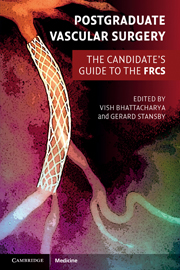Preface
Summary
Examinations are always challenging although less so for the well prepared. The Intercollegiate Exit Examination in Surgery, in particular, often causes considerable anguish for the candidates. It is expensive to fail the examination, both financially and emotionally. It is a high stake examination and comes at a critical stage in a young surgeon's career when he or she is nearing the end of training.
Over many years, and having discussed the examination with both successful and unsuccessful candidates, we felt that a book was required that would provide a quick, easy read for candidates already under pressure to cover a vast array of subjects. It would need to be pitched at the right level and would complement both clinical experience and aid personal revision.
This book has been divided into two sections. The clinical cases section has been written by two recently successful candidates who have incorporated the views of several trainees to make this section relevant to their needs.
The second section has been written by experts in their respective fields who have provided succinct chapters in a concise format. All the co-authors are surgical trainees, most of whom have passed the examination or are preparing for it. Key points have been mentioned at the beginning of the chapters to aid quick revision before the examinations. References have been deliberately kept to a minimum.
We thank all the contributors for their hard work and timely submission of manuscripts.
- Type
- Chapter
- Information
- Postgraduate Vascular SurgeryThe Candidate's Guide to the FRCS, pp. ix - xPublisher: Cambridge University PressPrint publication year: 2011

